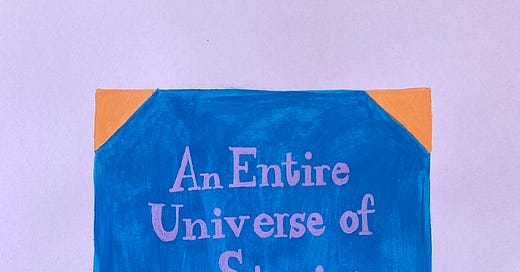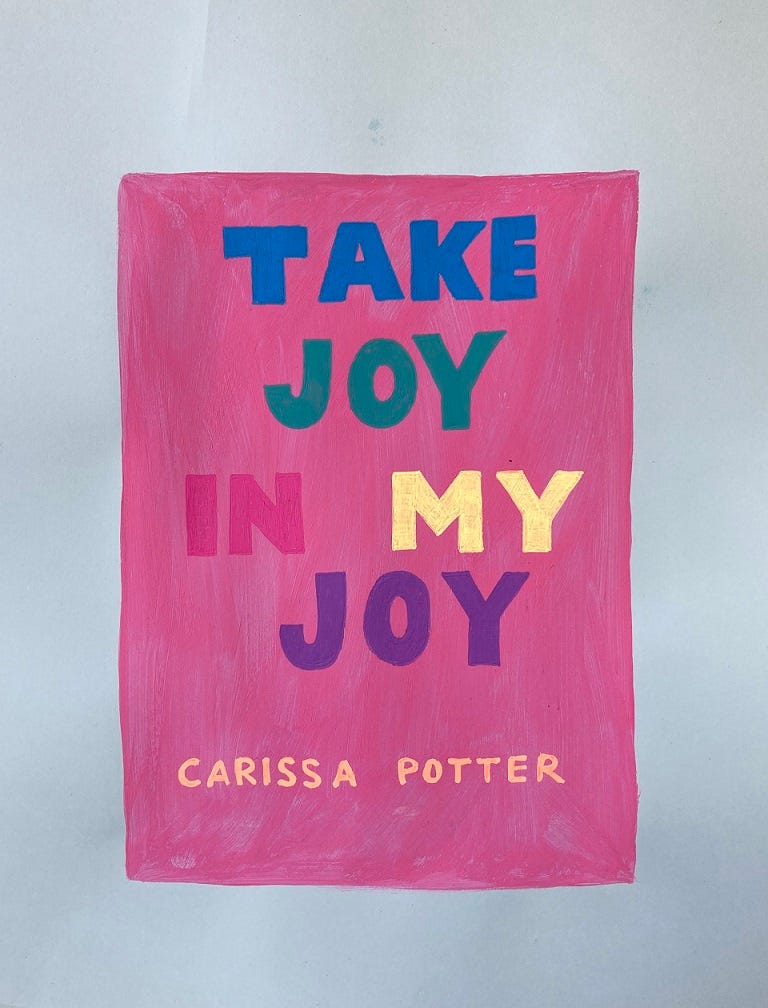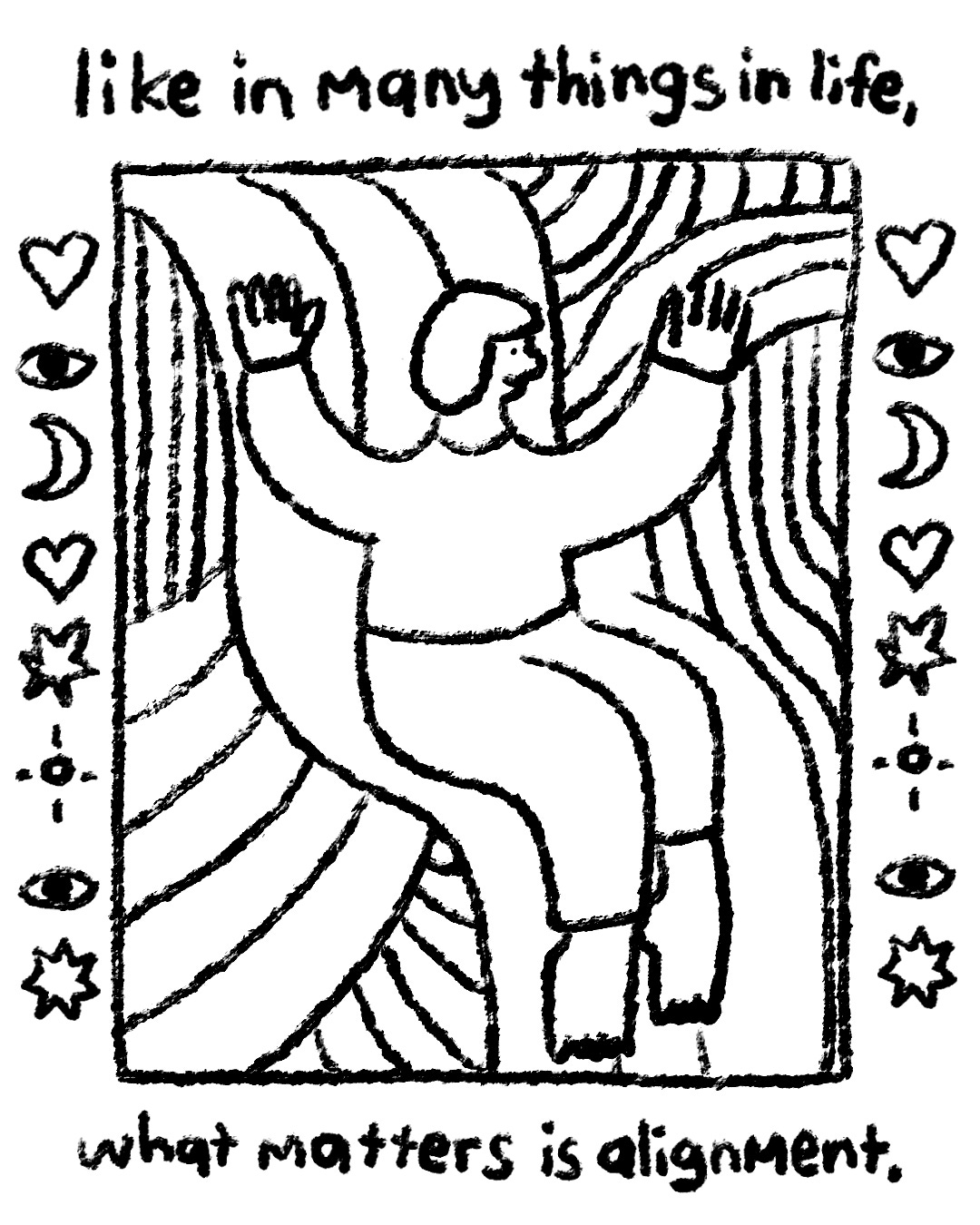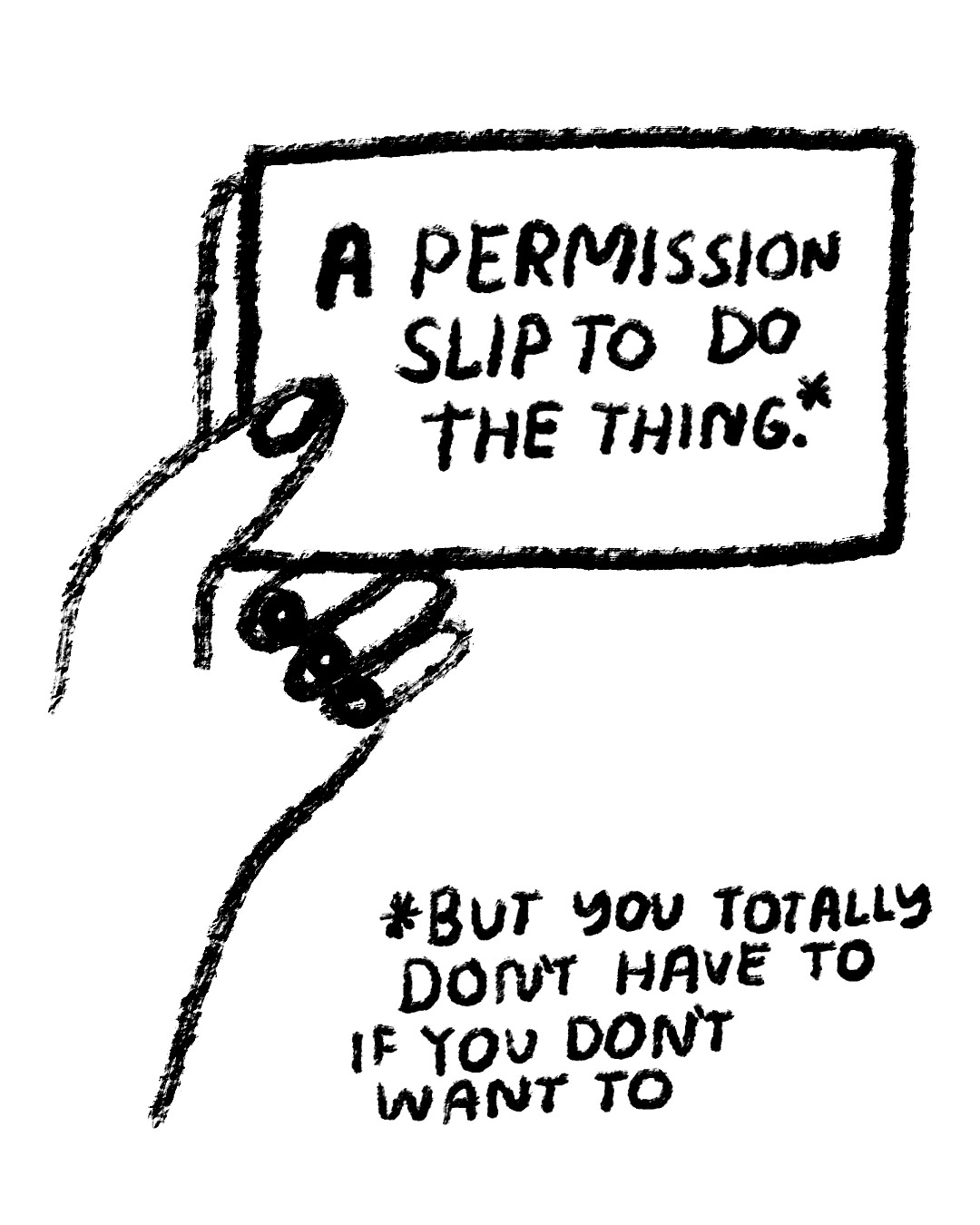"Like in many things in life, what really matters is alignment."
Why we want to publish with expert Bridget Watson Payne
Hi m’dears,
The two of us (the extraordinary illustrator, artist, author, writer of newsletters, and human Carissa Potter and me: editor, author, artist, writer of newsletters, sometime speaker and teacher Bridget Watson Payne) were drinking coffee together the other day when we got chatting about book publishing. We were comparing notes about the conversations we’ve had with folks about publishing over the years. The questions people ask us, and the anxieties they express. As published authors ourselves – and for me as someone who has worked in publishing for a long time, and for Carissa as someone who runs a successful publishing business – these kinds of conversations do tend to arise.
And, as we chatted, the idea started to emerge of collaborating on a little project on this topic. What if we both wrote essays about our experiences? Carissa’s would naturally be a bit more confessional and personal as that’s her voice and the writing style she’s known and loved for. Mine would be a bit more practical and advice-y since that’s what I tend to offer folks in this publishing-adjacent space. Then, what if we each selected favorite quotes from each other’s essays to illustrate? So I’d get some of my words in Carissa’s signature illustration style (um, amazing!) and she’d get some of her words on book covers by me (somewhat less astonishing but still fun). So that’s what we did. And what you are about to read and look at is the result. Enjoy!
Carissa:
My relationship with my mother is complicated. I never know where she ends and I begin. My therapist calls it enmeshment. Maybe it sounds strange, but I swear we can feel each other’s pain, like an invisible thread binding us together. A few weeks ago, I could sense she needed me. And she did.
For as long as I can remember, my mother has dreamed of writing a book. Not just a book—an entire universe of stories, podcasts, and art house films. And they’re good. Really good. I say this as her toughest critic.
But here’s the hard part: when someone you love and believe in wants to be published—and you already are. She’s spent years crafting a dystopian story about a girl surviving underground, with grand visions of a Disney adaptation, action figures, and enough wealth to free us all from work. And she believes in it. She believes in herself. I do, too. My mother is relentless. When she wants something, she makes it happen. I know this because she taught me how.
Yet, I wonder—what is she really seeking? Is it just about storytelling? Or is it the longing to be seen, to have the world recognize the brilliance she feels inside? And if that moment ever comes, would it be enough?
A few months ago, an editor reached out to me about a book on gratitude. It was exhilarating—validating. A dream made real. I had spent years cautiously whispering, “I want to write a book,” fearing the ridiculousness of it. And then, almost five years later, someone actually wanted to work with me. But I didn’t tell my mother.
I wanted to. But I didn’t. Because I knew her first thought wouldn’t be excitement for me—it would be, “Why not me?” I knew this because it was my own first thought when my grad school classmate Jenny Odell’s book, How To Do Nothing, became a bestseller. I admire Jenny—she’s brilliant and kind. And yet, that little voice inside me still asked, “Why not me?”
I wish my mother could take joy in my joy, just as I wish I could do the same for others. She is the reason I am an artist, a writer. She is the person I long to make proud. And the truth is, if she is proud of me, nothing else really matters.
Bridget:
One of the things I do as a freelancer is “creative consultation.” That can mean a lot of different things. But something it often means, in practice, is sitting down and having conversations with folks who want to write a book, or want to publish a book, or think maybe they want to publish a book, or aren’t sure about publishing a book. Folks who have questions, folks who have uncertainties.
This is where I come in and, I hope, can be helpful. I can answer some questions—such as questions about how the publishing industry works. But also, I can ask questions. Questions that, I hope, can help folks find their own answers and get to the heart of the matter.
One question folks have fairly often is: Is my idea any good? I can answer this question in some regards. I can comment on how commercial a book idea might be considered by certain types of publishers. But, relevant though that kind of information can be in certain situations, I still think it’s ultimately sort of beside the point. Like in many things in life, what really matters is alignment. Having a really clear vision of your book idea. And then also having a really clear vision of your particular hopes and expectations of success. And then figuring out if those two things are in alignment
.
In other words—can the book you want to make reasonably hope to achieve the kind of success you want to achieve? If your goal is to achieve John Grishman-level bestsellerdom with an abstruse book of poetry, we almost certainly have a misalignment. But if your vision of success for that same book is to see it beautifully printed and sold in a few well-curated stores that specialize in such things, then that seems like a not unreasonable goal, doesn’t it?
Why do you want to publish a book? Do you have something to say that no one else can say—a slantwise vision you want to get out there? Great. Will it feel good to spend the next two years of your life working on this thing? (Because, let’s be clear, that’s how long it takes). Great. Do you want to hold a physical manifestation of your idea in your hands? Excellent. Are you trying to make a whole lot of money? Not great. Publishing is, by and large, a labor of love. People are, by and large, not getting rich. Ditto famous.
For the most part, I want to offer people a permission slip to do this thing. There is most often a way to bring the book vision and the success vision into alignment. If it sounds good to you then, yes, pursue publication! Doubts and fears shouldn’t stop you. Realism has room for optimism.
But you totally don’t have to if you don’t want to. I’ve talked to people who felt weirdly pressured to publish as some marker of achievement when in fact a book was not in alignment with their desires, hopes, or dreams. Books are glorious whether you decide to just read them, or make your own.
And there you have it. Carissa and I are both, by natural inclination, folks who like to collaborate. (Funny, I hated group projects as a kid, but I’ve come love a good creative collaboration as an adult – the difference of course is that as a grown-up you get to choose partners who a) are super cool and b) want to be in it with you and c) actually do their work). Which is to say, we both loved doing this and had a ton of fun working on it. We hope you enjoyed and/or got useful stuff out of it, even a fraction as much as we enjoyed making it.
Bridget made a mixtape - it’s SO COOL. Make sure to follow her. Shoot her an email @ bridgetwatsonpayne@gmail.com or check out her work here.
Come for what is arguably the best opening track on one of my playlists ever (outside of those times when Beyoncé has a new album, of course) — stay for the rest:













Thank you for sharing this Carissa. I was writing about my relationship with my mother and there are a lot of mirrors in your relationship with your mother and mine with my mama. Especially in this part: "My relationship with my mother is complicated. I never know where she ends and I begin. My therapist calls it enmeshment. Maybe it sounds strange, but I swear we can feel each other’s pain, like an invisible thread binding us together. A few weeks ago, I could sense she needed me. And she did." // Eager to read on to hear what Bridget shares. // <3 <3 <3
Love seeing your work in curated shops. I feel like I’m a member of an underground cool community knowing it is you